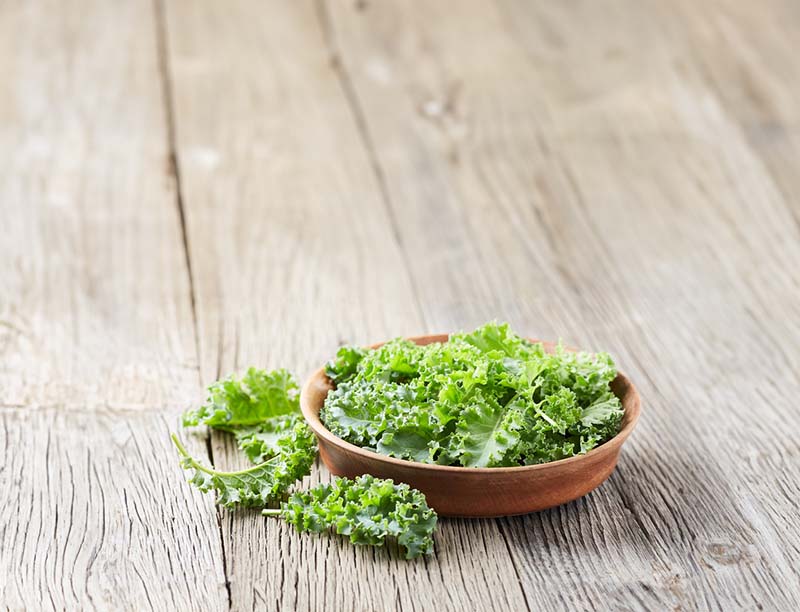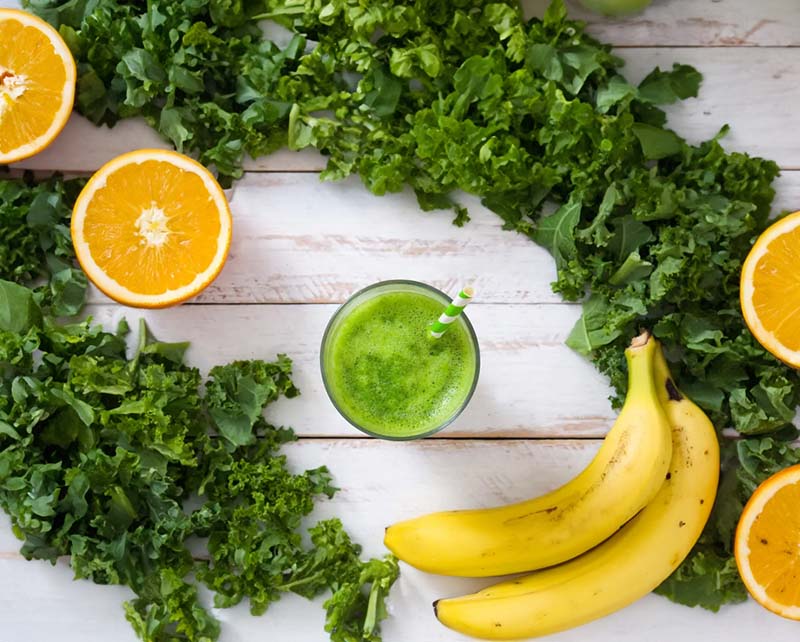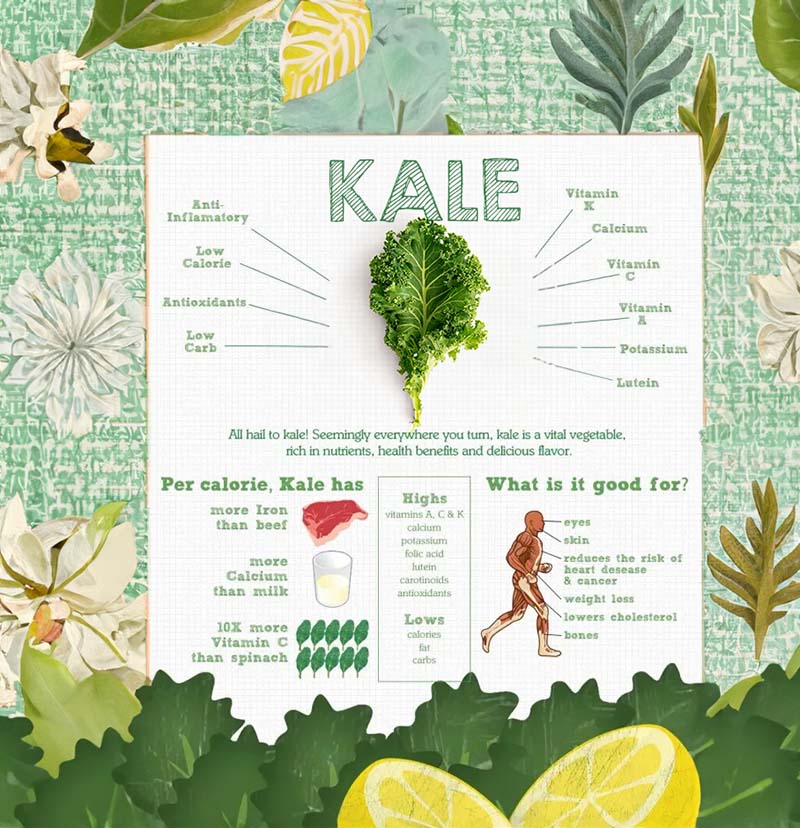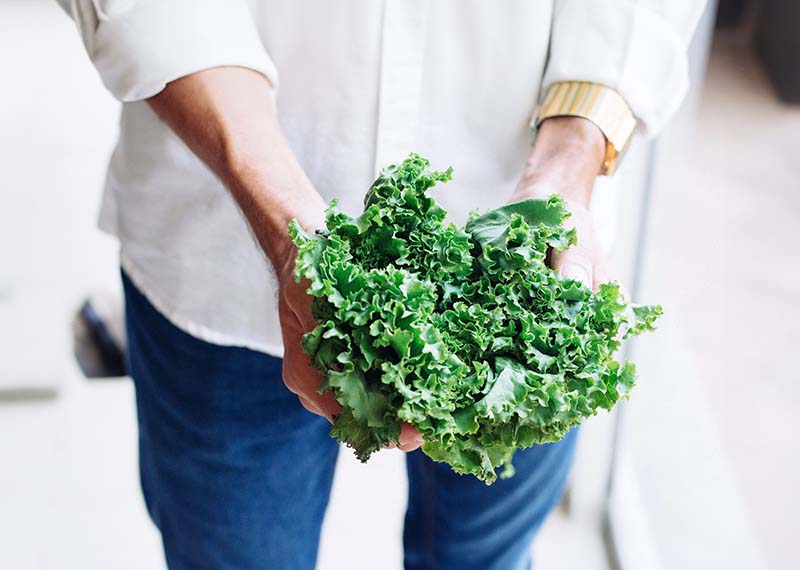The question, “Does kale help you lose weight?” resonates with many pursuing a healthier lifestyle. Known for its impressive nutritional profile, kale has gained popularity in the realm of weight management.
This article delves into kale’s role in weight loss, assesses its benefits as a dietary component, and offers tips for integrating this nutrient-rich vegetable into your diet effectively.
Related articles
- Are Lupini Beans Good for Weight Loss? Unveiling the Truth.
- White Kidney Beans for Weight Loss: Effortless Diet Boost.
- Can Avocado Help You Lose Weight? Unveiling the Truth.

1. Does Kale Help You Lose Weight?
Indeed, kale is an excellent addition to any weight loss plan. This nutrient-rich vegetable offers a plethora of health benefits with minimal calorie content. Despite being low in calories and carbohydrates, kale is rich in fiber, vitamins, minerals, and antioxidants. For instance, 100g of kale contains just around 35 calories, making it a prime choice for anyone looking to reduce calorie intake while maintaining high nutritional value.
Fiber, a significant component of kale, plays a vital role in promoting satiety, essential for managing portion sizes and curbing snacking. Kale’s versatility allows for both raw and cooked preparations – from salads and smoothies to soups and diverse culinary creations, seamlessly fitting into a calorie-aware diet.
Note: When using kale in smoothies, pairing it with fruits like bananas or apples not only enhances the flavor but also adds natural sweetness, making it more palatable for those new to kale. Additionally, cooking kale with a bit of healthy fat like olive oil can help in absorbing its fat-soluble vitamins more effectively.

2. Kale and Weight Loss
Now, we’ll explore the kale benefits for weight loss, emphasizing its role in a nutritious diet.
Low-calorie and Nutrient-packed
Kale’s low-calorie yet nutrient-rich profile is a boon for weight loss enthusiasts. A single cup of chopped kale has just around 33 calories. But don’t let its low-calorie count fool you; kale is a powerhouse of nutrients.
It’s laden with vitamins such as K, A, and C, along with a host of antioxidants. This nutritional richness makes kale an excellent choice for those seeking to lose weight without compromising on their nutritional intake.
Abundant in Fiber
Kale’s high dietary fiber content is a critical factor in its effectiveness for weight loss. Fiber plays a pivotal role in appetite control. It promotes a sense of fullness, helping to curb overeating.
Beyond appetite regulation, fiber is also beneficial for digestion and maintaining stable blood sugar levels, thereby reducing the likelihood of succumbing to unhealthy snacking.
Boosts Metabolism
The iron content in kale isn’t just for show; it’s a natural booster for your metabolism. Iron is crucial for the production of red blood cells and the transport of oxygen throughout the body.
This process is vital for a healthy and active metabolism, which is essential for efficient weight management.
Promotes Hydration
Kale also contributes to hydration, being composed of approximately 89% water. Hydration is often overlooked in weight loss regimes, but it’s crucial.
Proper hydration aids in maintaining an active metabolism and ensures that your body functions optimally.
3. What Are Other Health Benefits of Kale?
Besides its well-known nutritional value, kale offers specific health benefits that cater to various aspects of well-being, from cancer prevention to skin health and blood sugar regulation.
Aids in Cancer Prevention
Cancer is when cells in your body grow uncontrollably. Kale is packed with substances that might help stop this. It has sulforaphane, which research shows could block cancer from starting. Kale also has indole-3-carbinol, another thing that might help prevent cancer. Some studies say eating cruciferous vegetables like kale can lower the risk of different cancers, but results can vary.
Enhances Skin Health and Appearance
Kale does wonders for your skin too. It’s full of vitamins C, E, and K, which help your skin look fresh and young. Vitamin C is especially good for making your skin brighter and reducing fine lines and damage from the sun and pollution.
Supports Stable Blood Sugar Levels
People often call kale a “superfood” because it’s really good for you. It’s got stuff in it that helps keep your blood sugar levels stable. This includes fiber and antioxidants like quercetin and kaempferol. One study showed that people eating kale with a meal had lower blood sugar afterwards. These antioxidants also help your body use insulin better, which is important for controlling blood sugar.
Tips: To get the most out of kale’s cancer-fighting benefits, eat it with other similar vegetables. When eating kale for your skin, include foods with healthy fats, like nuts, to help your body use the vitamins better. And for blood sugar, make sure to have a balanced diet along with the kale. Remember, kale works best as part of a healthy lifestyle.
4. Nutritional Information of Kale
Kale, a well-known leafy green, is part of the cabbage family and belongs to the group of cruciferous vegetables. This family also includes cabbage, broccoli, cauliflower, collard greens, and Brussels sprouts. There are several varieties of kale, characterized by their leaf colors (green or purple) and textures (smooth or curly).
One of the most common types you’ll find is curly kale, also known as Scots kale. It’s recognizable by its green, curly leaves and tough, fibrous stem. A mere cup of raw kale, weighing around 21 grams, packs a nutritional punch with minimal calories. Here’s a breakdown:
- Calories: Just 7
- Carbohydrates: 1 gram
- Fiber: 1 gram
- Vitamin K: Provides a whopping 68% of your Daily Value (DV)
- Vitamin C: 22% of your DV
- Manganese: 8% of your DV
- Vitamin A: 6% of your DV
- Riboflavin (Vitamin B2): 5% of your DV
- Calcium: 4% of your DV
Beyond these, kale also offers small amounts of folate, vitamin B6, potassium, magnesium, and iron. Incorporating more kale into your diet is an excellent strategy to boost your intake of these essential vitamins and minerals, along with other vital nutrients.

5. Consuming Kale Pose Any Health Risks?
Kale is great for your health, but it’s important to know it might not suit everyone. If you have thyroid problems, eating a lot of kale could make things a bit worse. This is because kale has stuff in it that might mess with how your thyroid works, affecting your blood sugar and metabolism.
Also, if you have issues with blood clotting or you’re taking medicines to thin your blood, you should be careful with kale. It’s high in vitamin K, which is good for your bones and helps your blood clot, but it might not mix well with certain medicines or conditions.
Lastly, kale can sometimes cause tummy trouble like stomach pain, constipation, or feeling bloated. This happens more if you’re not used to eating a lot of fiber.

6. Kale vs. Spinach: Which One Is More Beneficial for Your Health?
|
1 cup (21 grams) of raw kale |
1 cup (30 grams) of raw spinach |
|
|
Calories |
7 | 7 |
|
Carbs |
1 gram |
1 gram |
|
Fiber |
0.9 grams |
0.7 grams |
|
Protein |
0.6 grams |
0.9 grams |
|
Vitamin K |
68% of the RDI |
121% of the RDI |
|
Vitamin C |
22% of the RDI |
9% of the RDI |
|
Vitamin A |
6% of the RDI |
16% of the RD |
|
Riboflavin |
6% of the RD |
4% of the RDI |
|
Calcium |
4% of the RDI |
2% of the RDI |
|
Folate |
3% of the RDI |
15% of the RDI |
|
Magnesium |
2% of the RDI |
6% of the RDI |
|
Iron |
2% of the RDI |
5% of the RDI |
|
Potassium |
2% of the RDI |
4% of the RDI |
|
Vitamin B6 |
2% of the RDI |
3% of the RDI |
|
Thiamine |
2% of the RDI |
2% of the RDI |
| Niacin | 2% of the RDI |
1% of the RDI |
Vitamin A
Vitamin A is crucial for immune function and eye health, with a daily need of about 3,000 international units (IU). Both spinach and kale are rich in carotenoids, which our bodies turn into vitamin A. Spinach takes the lead here; one cup gives you 2,810 IU of vitamin A, while a cup of raw kale offers 1,010 IU.
Fiber and Protein Content
When it comes to protein, spinach slightly edges out kale. A cup of cooked spinach contains 5 grams of protein, compared to kale’s 2.9 grams. However, kale offers more protein for each calorie consumed.
Fiber-wise, both are great choices. The average adult needs about 25 grams of fiber daily, but most Americans fall short. One cup of raw spinach provides 0.7 grams of fiber, and kale offers a bit more at 0.9 grams per cup. Including these greens in your diet can help boost your fiber intake.
Vitamin C and Vitamin K
- Vitamin K is essential for blood clotting and bone health. Both spinach and kale are good sources. One cup of raw spinach has 145 micrograms (mcg) of vitamin K, surpassing kale’s 82 mcg per cup.
- Vitamin C, known for its antioxidant properties and immune support, isn’t just found in citrus fruits. Leafy greens are also a good source. One cup of raw spinach provides 8.5 mg of vitamin C, while kale offers more, with 20 mg per cup.
Calories
Both kale and spinach are low in calories, making them excellent choices for a healthy diet. Kale has slightly more calories, with about 9 calories per cup compared to spinach’s 7 calories per cup.
However, the difference is negligible, especially considering the nutrient density of both vegetables.
Conclusion
“Does Kale Help You Lose Weight?” – Kale is an excellent choice for healthy weight loss due to its low calorie content and high nutritional value, including fiber, vitamins, and
minerals. Regularly including kale in meals can be both enjoyable and advantageous for those on a weight loss journey. We’re interested in hearing about your personal experiences with kale and its impact on your health. Your stories could be a great inspiration to others pursuing similar health goals. Additionally, visit HealthConnect for ongoing health and wellness advice to support you in achieving your health objectives.
Source:
ncbi.nlm.nih.gov
fdc.nal.usda.gov
ods.od.nih.gov
mdpi.com
link.springer.com

Dr. Joyce Slater: Your Guide to Informed Health Choices
Dr. Joyce Slater shines as a distinguished expert in the field of nutrition and public health. Contributing her vast expertise to HealthConnectbc, she embodies a deep-seated passion for enhancing public well-being. As a respected figure in her field. Dr. Slater’s academic journey and professional achievements are nothing short of inspirational.
Holding a significant position as a researcher and educator, Dr. Slater has delved deeply into the intricacies of food literacy and nutritional science. Her work, prominently featured in numerous esteemed scientific publications, underscores her dedication to expanding our understanding of food’s role in health and society.
At the heart of Dr. Slater’s professional ethos is a profound desire to positively impact individual lives through education and research. She often says, “Empowering people with the knowledge to make healthier choices is the most rewarding aspect of my work.” This principle is the cornerstone of her involvement with HealthConnectbc, where she strives to provide reliable and practical health advice.
Dr. Slater’s contributions to HealthConnectbc are multifaceted: academically, she offers insights into the complex world of nutrition and health, enhancing both public understanding and professional practices. Additionally, she is instrumental in guiding and inspiring the next generation of health professionals, thus fostering future excellence in the field.
Juggling rigorous research with her educational duties, Dr. Slater demonstrates an unwavering commitment to her profession. Her approachable nature and genuine concern transcend the confines of academia, touching the lives of everyone she interacts with. Dr. Slater looks forward to continuing her journey of discovery and education, dedicated to the ongoing improvement of public health and nutrition.
At HealthConnectbc, Dr. J. Slater is not just a contributor; she is a guiding light, dedicated to enlightening and motivating individuals towards a healthier and more informed lifestyle.
PUBLISHED ARTICLES
- Food literacy competencies: A conceptual framework for youth transitioning to adulthood (2018)
- Self-perceived eating habits and food skills of Canadians (2016)
- Challenges to acquiring and utilizing food literacy: Perceptions of young Canadian adults (2016)
- Socio-demographic and geographic analysis of overweight and obesity in Canadian adults (2009)
- Sustainable well-being: Concepts, issues, and educational practices (2014)

